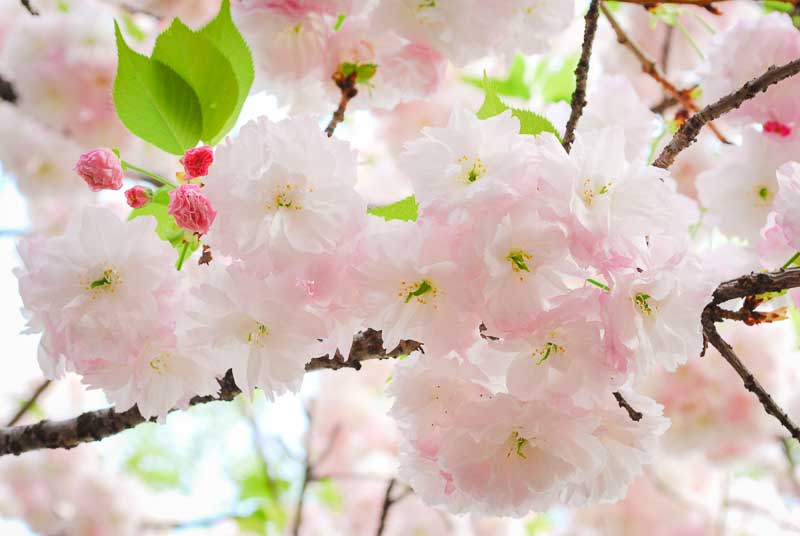
问:什么叫做老实修行?请问要怎样才能老实修行?
师答:老实修行,有很多人喜欢修行,可是就不老实修行,总是听说那一个法师好,一窝蜂的又跑这里,又跑那里,到处乱跑,不会老实修行。其实每个法师都是好的,你只要认定一个师父,好好老老实实修行就好了。还有的人,稍微知道一点佛理,就到处讲,就是不老实修行。所有的祖师都鼓励人老实修行,就是老老实实的修行就好了。

问:什么叫做老实修行?请问要怎样才能老实修行?
师答:老实修行,有很多人喜欢修行,可是就不老实修行,总是听说那一个法师好,一窝蜂的又跑这里,又跑那里,到处乱跑,不会老实修行。其实每个法师都是好的,你只要认定一个师父,好好老老实实修行就好了。还有的人,稍微知道一点佛理,就到处讲,就是不老实修行。所有的祖师都鼓励人老实修行,就是老老实实的修行就好了。

人乘佛教推行于全世界,为顺应社会型态、时代潮流的需要,所持的素斋有以下几种:
光明斋
即早餐素食,又叫“早斋”。凡造杀业,即是地狱黑暗的因。持早斋者,于早晨一餐免除杀业,即可免除人生的一分黑暗,可以得到一分光明,正好像清晨东方日出,即可排除大地的黑暗一样,故叫“光明斋”。
五净肉
凡人乘佛教的三宝弟子,如能做到完全长斋吃素为最好,若因家庭环境或在外工作等种种情形,不容许吃素食,能食五净肉也很好。所谓五净肉:
第一、不是亲手去杀的。
第二、不是叫他人去杀的。
第三、他人不是为我而杀的。
第四、我没有看到他人杀。
第五、我也没有听到被杀的惨叫声。
在以上五种情况之下的众生肉,有人宴请宾客,或到市场上买回来的,都叫“五净 肉”。
报恩斋
人乘佛教,首重报恩的行为,于父母的诞辰吉庆,或先人的冥寿、忌日,这一天全家吃素,或请亲友,亦办素斋,可免増冥阳二者的罪业;因息罪上报亲恩的缘故,所以就叫“报恩斋”。
菩萨斋
凡是诸佛菩萨,都是大慈大悲的,人乘佛教乃鼓励世人,站在人的立场,崇敬佛菩萨的伟大,提倡拜菩萨、学菩萨,而且还要作菩萨,故每于诸佛菩萨的圣诞这一天,必须素食,这叫“菩萨斋”。
弥勒斋
当来下生弥勒尊佛,再过五十六亿七千万年,由兜率天弥勒内院,以等觉菩萨后补佛位的身份,降生人间成佛时,龙华三会,得度大众,大多数都是在释迦世尊佛化时期,守持斋戒者。我们推行人乘佛教,建设人间净土,在家修学菩萨的修士们,若能吃弥勒斋——长斋,共同净化世间,人间净土成就之时,即是弥勒下生成佛之期,故人间净土,亦即是弥勒净土,所以凡是持弥勒斋的人乘佛教徒们,将来龙华会上,首先得度;因此,与弥勒佛结缘,就叫“弥勒斋”。

当今社会,人心不古,道德沉沦,大多数的人对于道德的观念模糊不清,无法遵循,以致离道德愈远。人乘佛教推行于全世界,为了建立人类新的道德观念,不以谈玄说妙来讲道德,以免使人对于道德问题高深的理论感觉模糊,望之却步,因此圣开导师乃将道德的定义简单的列成一个公式,重新订为:
利己谓之道,
利人谓之德,
利己利人谓之道德。
让世界上各种肤色种族,男女老幼,万业亿行的人类,皆能了解什么是道德,使人人易懂,人人能行,便于遵循,以普及道德观念,达到净化人心,美化世间的目的。

问:学佛的人受到诽谤、侮辱时要如何应付?
师答:学佛的人遇到人家诽谤、侮辱,我们就要用忍辱波罗蜜。所谓“忍辱波罗蜜”,“波罗蜜”就是到彼岸的意思。我们凡夫众生都是在苦海的这边,叫做此岸,我们要以忍辱的精神不要怕受到侮辱,不要怕受到诽谤,我们要以忍辱的精神而达到彼岸。所谓“彼岸”,就是清净光明快乐的彼岸。讲起来,要忍是很不容易,我们从凡夫开始忍,一直到成佛还是要忍。
要讲这个忍字啊,讲一天也讲不完,但是我们学佛的人要知道忍的宝贵,那我们就要做到真正能够忍,要做到真正的忍,就要做到无忍可忍,不是做到忍无可忍。
一般凡夫众生也会忍,忍到忍无可忍的时候,就爆炸了!我们学佛的人跟一般凡夫众生的忍不一样,要无忍可忍,要把人家骂你的、侮辱你的、诽谤你的消化掉,有人骂你、侮辱你、诽谤你,你就笑一笑,认为说诽谤你的人是善知识。假使有人跟你讲说:“某人诽谤你啊!某人侮辱你啊!”你口里讲说:“阿弥陀佛,无量光明!”就好了,因为阿弥陀佛有无量光明,无量寿命,无量功德。有人对你不好,或者有人对你很好,你也是念一声阿弥陀佛,就把黑暗变成光明。
假使人家诽谤你、侮辱你,你都记在心里,这样就会害了自己。那么你检讨自己,觉得可能我确实有不好的地方吧!人家才会侮辱我、才会诽谤我,人家不讲我也不知道,人家讲了我就知道改进改过,那不是最好的吗!
假使你没有不好的地方,那么你就把他当作不懂事、当作小孩子,那也没有关系啊!你慈悲心生起来,体谅对方可能没有知识,那侮辱我有什么关系啊!我没有什么损害吧!你这样子就把它度到彼岸了。
就好像人家送礼给你,你可以接受,也可以不受。我来讲个故事。
佛陀在世的时候,有一个年轻人,他没有知识,有一天跑到佛陀的地方,胡言乱语,讲了一通。他讲完了,佛陀很高兴说:“喔!好!好!好!今天有缘哪,你来跟佛陀讲这些话,佛陀听了好高兴。”佛陀就反问他说:“你家里有没有办过喜事啊?过年、过节有没有准备些好的东西要送给亲戚朋友啊? ”
他说:“有啊!有啊!过年过节办喜事,我妈妈都会准备很多好东西要我送去给亲戚朋友。”
佛陀又问他:“假使你的亲戚朋友不收你的礼物,那你怎么办呢?”
那么这个青年就回答:“不收礼物,我就拿回来嘛!东西是我的,不收我就拿回来嘛!”
佛陀很幽默的说:“今天你认为你跟佛陀讲的这许多话是很好的礼物,但是佛陀不需要啦,那你怎么办呢?还是带回去吧!”
他这一想,不对啦!在佛陀面前讲错话,佛陀也没有生气,他想想,马上就跪下来:“佛陀啊!我向你忏悔,我今天讲不对啦!”
佛陀就讲说:“没有关系,没有关系,你来了,你骂佛陀也是有缘啦!你称赞佛陀也是有缘啊!”
他听到说没有关系,他心里面就好高兴。这个青年听到说他跟佛陀有缘,好惭槐!惭愧心生起来:“佛陀!那我现在顶礼,我来皈依你好不好?”佛陀说:“好好好,有缘有缘。”皈依佛陀以后就好高兴的回去了。
这个故事是在佛教的大藏经里面的。我们学佛修行就要像佛陀这样子,你骂我也没有关系,你讲坏话也没有关系,佛陀还说我们有缘有缘。所以我们学佛啊,在任何地方碰到人家诽谤我们、讲我们坏话、侮辱我们,我们也笑笑:“阿弥陀佛,有缘,有缘。”以后他就:“哎!这个人这么奇怪!”他还跟你做好朋友:“下次你带我去皈依好吧!”那你就把他度来了。
假使他诽谤你,你就气得脸红脖子粗,摩拳擦掌,马上要跟他打起来了,那怎么办?那你就受相赠与——接受了他的礼物啦!所以我们学佛啊,要学佛不受之礼,要知道这种方法,不受这种礼物。